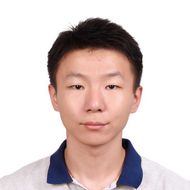AI Predicts Behaviour of Quantum Systems

Scientists from HSE University, in collaboration with researchers from the University of Southern California, have developed an algorithm that rapidly and accurately predicts the behaviour of quantum systems, from quantum computers to solar panels. This methodology enabled the simulation of processes in the MoS₂ semiconductor and revealed that the movement of charged particles is influenced not only by the number of defects but also by their location. These defects can either slow down or accelerate charge transport, leading to effects that were previously difficult to account for with standard methods. The study has been published in Proceedings of the National Academy of Sciences (PNAS).
Modern electronics rely on quantum effects. Devices such as semiconductors, LEDs, and solar panels all depend on the behaviour of electrons in materials. Accurately describing these processes is challenging, as their simulation demands immense computing power. Simulating the motion of electrons in a material with thousands of atoms requires supercomputers to perform millions of calculations.
Typically, quantum systems are modelled using the molecular dynamics method, which enables predictions of how atoms and electrons will move over time. However, when electron states change rapidly, standard modelling methods become excessively resource intensive.
Researchers at MIEM HSE solved this problem by leveraging machine learning. The new algorithm analyses small fragments of the material, learns from their local properties, and then predicts the behaviour of the entire system. The scientists studied the two-dimensional semiconductor molybdenum disulfide (MoS₂), a promising material for optoelectronics and photovoltaics. In particular, it can function as the active layer in solar cells. Ideally, molybdenum (Mo) and sulphur (S) atoms form an ordered lattice, but in real materials, the structure is rarely perfect, as defects may occur. Defects are disruptions in the arrangement of atoms. In MoS₂, defects can manifest as vacancies (the absence of sulphur or molybdenum atoms), excess atoms between layers, local displacements, or other deviations from the ideal lattice. Defects can alter the behaviour of electrons: in some cases, they may impair conductivity, while in others, they can impart new properties to the material, such as increasing its sensitivity to light or its ability to conduct charge.

Dongyu Liu
'To understand how defects impact electron movement, we focused on small fragments of the material. The algorithm first analysed the local properties of the system and then predicted the behaviour of the entire structure. It’s similar to learning a language: first, you memorise individual words, and then you begin to understand whole sentences,' says Dongyu Liu, Assistant Professor at MIEM HSE.
It turns out that not only does the number of defects matter, but also their location. Defects can either delay or accelerate the movement of charged particles, creating traps for charge carriers within the semiconductor's band gap. Standard methods struggle to calculate these effects accurately, as the calculations must account for interactions both between defects and with the atoms of the material, which is difficult when using small computational cells. Machine learning helps overcome these dimensional limitations and account for the synergistic effects of multiple defects in the material.

Andrey Vasenko
'Importantly, this method not only speeds up calculations but also facilitates the study of real quantum systems,' explains Andrey Vasenko, Professor at MIEM HSE. 'The results of our research will help bridge the gap between theoretical modelling and experimental studies of materials. We have developed a new approach to studying charge motion in complex systems by combining high-precision computing, molecular dynamics, and machine learning. This method will help investigate materials in which electrons carry energy and information. This is crucial for electronics and energy production.'
See also:
School Students Master Communication with GigaChat at HSE and Sber Hackathon
In late December 2025, a unique competition was held at HSE University where participants solved challenges not by writing code, but solely by interacting with Sber’s GigaChat artificial intelligence model. The Improm(p)tu hackathon was an experiment less about programming skills than a new form of literacy: the ability to work effectively with AI by translating complex problems into a language neural networks can understand.
HSE Researchers Offer Guidance to Prevent Undergraduate Burnout
Researchers at the HSE Institute of Education have identified how much time students should ideally devote to their studies, extracurricular activities, and personal life to maintain strong academic performance without compromising their mental health. An analysis of responses from 2,753 students, combined with their actual academic results, revealed several risk factors—such as excessive homework—as well as positive factors, including sufficient sleep, regular exercise, and moderate participation in projects. Based on these findings, the researchers developed practical recommendations for both students and universities. The paper has been published in the European Journal of Education.
Scientists Discover Why Parents May Favour One Child Over Another
An international team that included Prof. Marina Butovskaya from HSE University studied how willing parents are to care for a child depending on the child’s resemblance to them. The researchers found that similarity to the mother or father affects the level of care provided by parents and grandparents differently. Moreover, this relationship varies across Russia, Brazil, and the United States, reflecting deep cultural differences in family structures in these countries. The study's findings have been published in Social Evolution & History.
When a Virus Steps on a Mine: Ancient Mechanism of Infected Cell Self-Destruction Discovered
When a virus enters a cell, it disrupts the cell’s normal functions. It was previously believed that the cell's protective response to the virus triggered cellular self-destruction. However, a study involving bioinformatics researchers at HSE University has revealed a different mechanism: the cell does not react to the virus itself but to its own transcripts, which become abnormally long. The study has been published in Nature.
Researchers Identify Link between Bilingualism and Cognitive Efficiency
An international team of researchers, including scholars from HSE University, has discovered that knowledge of a foreign language can improve memory performance and increase automaticity when solving complex tasks. The higher a person’s language proficiency, the stronger the effect. The results have been published in the journal Brain and Cognition.
Artificial Intelligence Transforms Employment in Russian Companies
Russian enterprises rank among the world’s top ten leaders in AI adoption. In 2023, nearly one-third of domestic companies reported using artificial intelligence. According to a new study by Larisa Smirnykh, Professor at the HSE Faculty of Economic Sciences, the impact of digitalisation on employment is uneven: while the introduction of AI in small and large enterprises led to a reduction in the number of employees, in medium-sized companies, on the contrary, it contributed to job growth. The article has been published in Voprosy Ekonomiki.
Lost Signal: How Solar Activity Silenced Earth's Radiation
Researchers from HSE University and the Space Research Institute of the Russian Academy of Sciences analysed seven years of data from the ERG (Arase) satellite and, for the first time, provided a detailed description of a new type of radio emission from near-Earth space—the hectometric continuum, first discovered in 2017. The researchers found that this radiation appears a few hours after sunset and disappears one to three hours after sunrise. It was most frequently observed during the summer months and less often in spring and autumn. However, by mid-2022, when the Sun entered a phase of increased activity, the radiation had completely vanished—though the scientists believe the signal may reappear in the future. The study has been published in the Journal of Geophysical Research: Space Physics.
Banking Crises Drive Biodiversity Loss
Economists from HSE University, MGIMO University, and Bocconi University have found that financial crises have a significant negative impact on biodiversity and the environment. This relationship appears to be bi-directional: as global biodiversity declines, the likelihood of new crises increases. The study examines the status of populations encompassing thousands of species worldwide over the past 50 years. The article has been published in Economics Letters, an international journal.
Scientists Discover That the Brain Responds to Others’ Actions as if They Were Its Own
When we watch someone move their finger, our brain doesn’t remain passive. Research conducted by scientists from HSE University and Lausanne University Hospital shows that observing movement activates the motor cortex as if we were performing the action ourselves—while simultaneously ‘silencing’ unnecessary muscles. The findings were published in Scientific Reports.
Russian Scientists Investigate Age-Related Differences in Brain Damage Volume Following Childhood Stroke
A team of Russian scientists and clinicians, including Sofya Kulikova from HSE University in Perm, compared the extent and characteristics of brain damage in children who experienced a stroke either within the first four weeks of life or before the age of two. The researchers found that the younger the child, the more extensive the brain damage—particularly in the frontal and parietal lobes, which are responsible for movement, language, and thinking. The study, published in Neuroscience and Behavioral Physiology, provides insights into how age can influence the nature and extent of brain lesions and lays the groundwork for developing personalised rehabilitation programmes for children who experience a stroke early in life.


